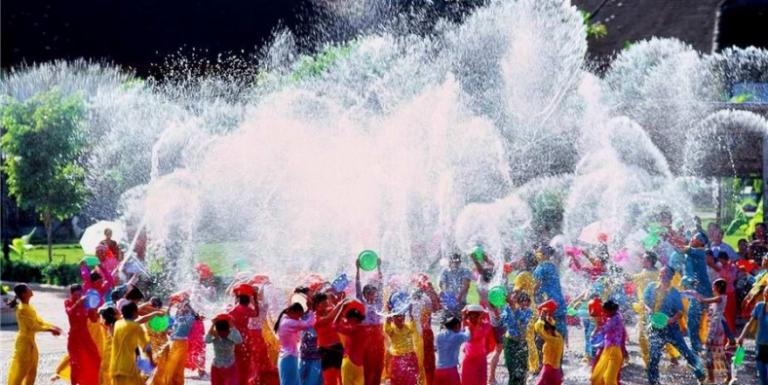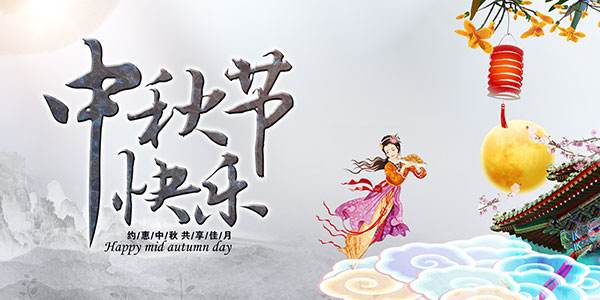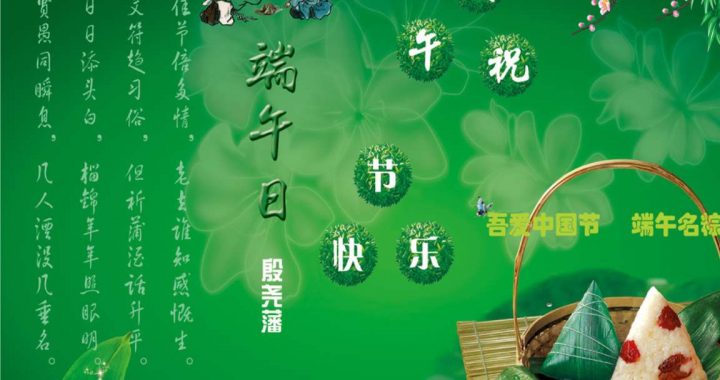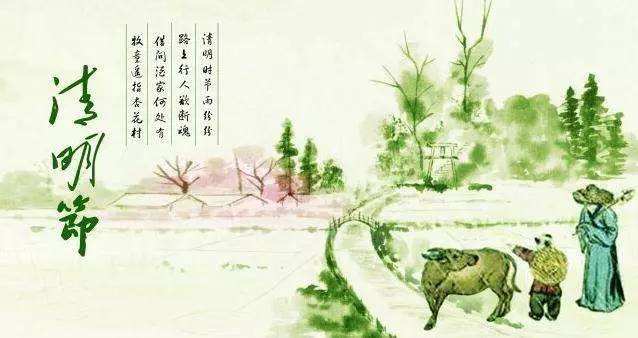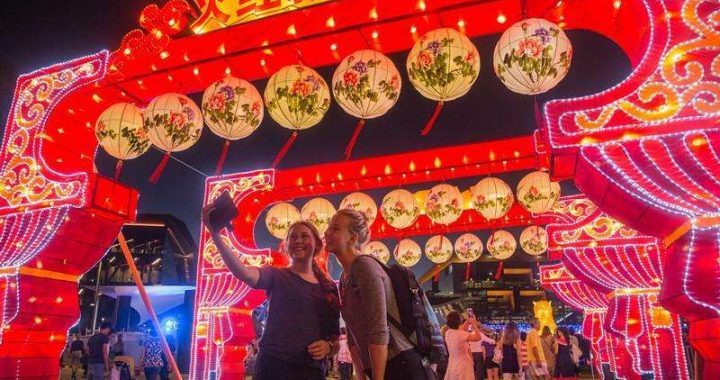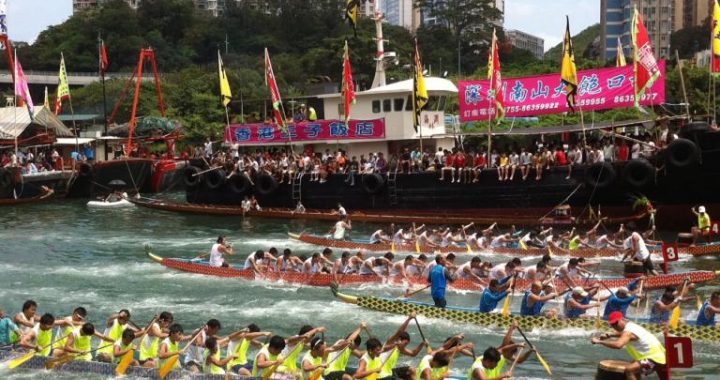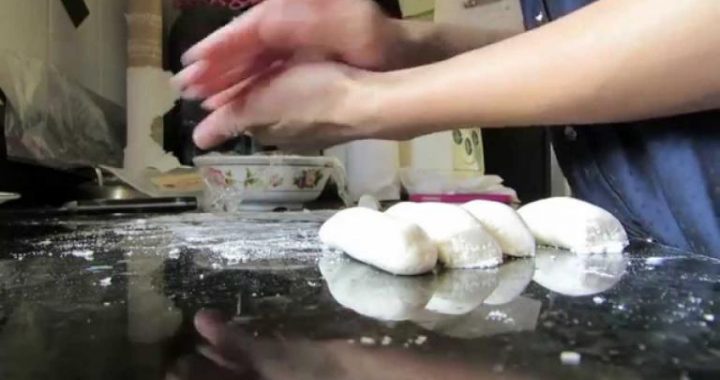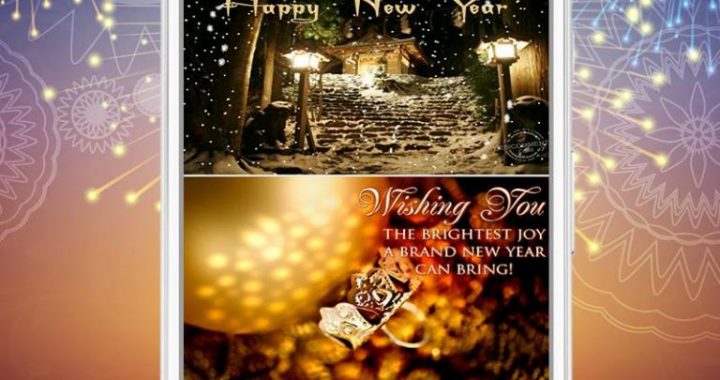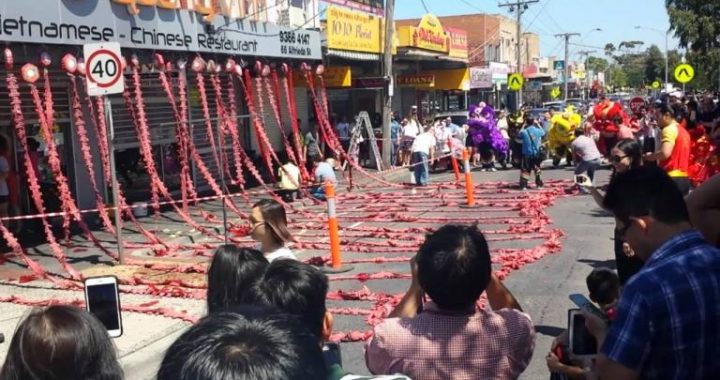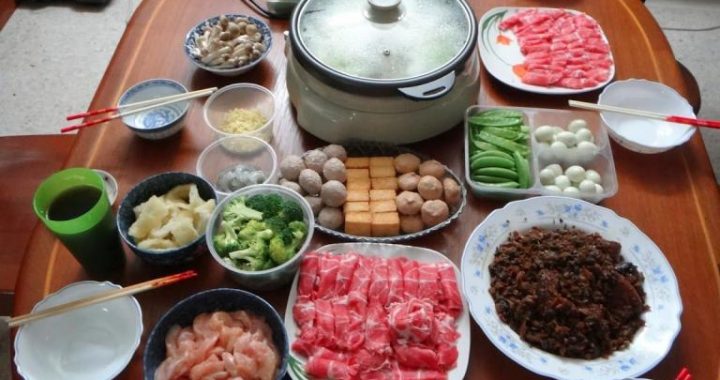Water Splashing Festival
5 min readWhen people talk about the Water Splashing Festival now, the Dai ethnic group’s Water Splashing Festival is called to mind first. Actually many ethnic groups other than the Dai ethnic group celebrate the Water Splashing Festival. To be exact, the Water Splashing Festival is a common festival of ethnic groups speaking Dai language including the Dai, Deang and Blang ethnic groups. Most of these ethnic groups believe in Theravada Buddhism (Theravada Buddhism was introduced from Burma and Thailand, and is called one of three schools of Chinese Buddhism(the other two being Chinese Buddhism and Tibetan Buddhism)). The time of the Water Splashing Festival is usually the 6th month of the Dai calendar corresponding to the middle of April. According to the Dai calendar, the 61h month is the beginning of a year, so in the areas of Xishuangbanna inhabited by Dai people, the Water Splashing Festival also has the meaning of ringing out the old year and ringing in the new.
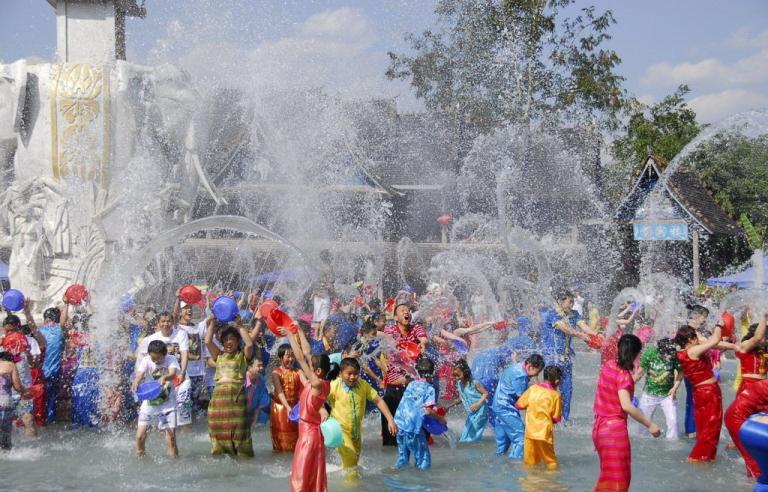
The Water Splashing Festival is also called the Bathing Buddha Festival, Buddha’s Birthday Festival or Flower Watering Festival. These different names are related to various ethnic groups’ different historical and cultural traditions. The Water Splashing Festival originated from Theravada Buddhism and is closely related to Hinayana Buddhism.
According to Buddhist doctrines, the Water Splashing Festival is a festival commemorating Sakyamuni, the founder of Buddhism. According to the legend that when the founder of Buddhism was born, dragons spurted scented rain to bathe Buddha, whenever this festival falls,a religious assembly is usually head to bathe Buddha in scented water, read Buddhist scriptures, pour water onto each other for blessings and thus wash away sins and pray for peace and health, but folk explanations about the origin of the Water Splashing Festival are more vivid. There is one legend spreading among Dai people in Xishuangbanna: in ancient times,a prince of the devils did all kinds of evil and made it hard for people to make a living. People hated his guts but could not kill him. Later, the prince of the devils took away seven girls as his wives by force. Among them, the youngest seventh girl was very clever.
She learned from the prince of the devils his fatal weakness -strangling the prince of the devils with his hair could kill him. So when the prince of the devils was asleep, the seventh girl plucked his hair and strangled the prince of the devils. In the end, the head of the prince of the devils fell to the ground and a great fire broke out on the ground. To prevent the great fire from burning, the seventh girl and her six elder sisters held the head of the prince of the devils in turn. Whenever the head changed hands, people plashed water onto the girlholding the head to flush away the blood stains on her body, wash away her fatigue of the previous year and pray for elimination of disasters in the new year. Thus, the Water Splashing Festival was formed to ring out the old year and ring in the new. The religious explanation and the folk legend are actually ancients’ rationalized explanations of life and practice. The Water Splashing Festival falls on a critical moment in spring sowing by various ethnic groups speaking Dai language. Whether the rain season begins early or late and the amount of rainfall bear on people’s life more or less, so people pray for favorable weather throughout the year through bathing Buddha respectfully and plashing water happily.
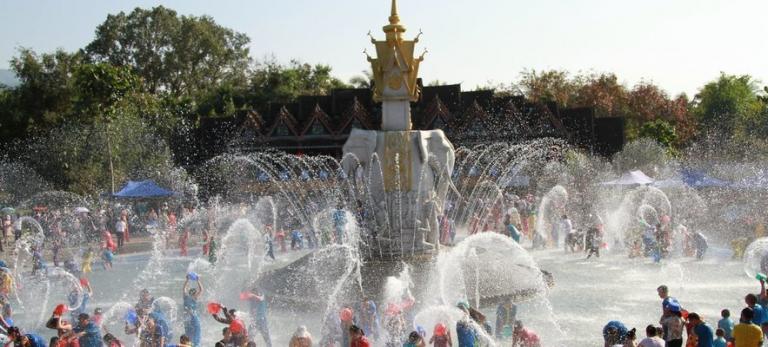
The Water Splashing Festival usually lasts three or four days. In these days, all stockade villages are immersed in joy. In Dehong Prefecture, Yunnan, there are water sources near various stockade villages’ temples. During the Water Splashing Festival, various stockade villages place a wood dragon in front of the square in front of the temple.
There is a water channel on the dragon body leading to the dragon mouth, and water poured onto the dragon body can spray from the dragon mouth. People carry out Buddha statues from the temple and place them near the dragon mouth. Then men and women of all ages take water buckets to water sources to fetch water, and then pour water onto the dragonbody to bathe Buddha. This is the ceremony that must be held every day during the Water Splashing Festival. After bathing Buddha, people can pour water onto each other. Old people use tree branches or hands to spray water onto young people’s shoulders to bless them.
Young men and women pour water onto each other playfully, and Dai people’s stockade villages become a sea of joy at once. During the Water Splashing Festival, various age groups of Dai people also prepare for and stage various artistic performances for people. At that time, people also prepare more than 100 tables of wine and dishes and invite relatives and friends to get together. The Water Splashing Festival in Xishuangbanna is another picture. The first day of the festival is equivalent to the Lunar New Year’s Eve, and the last day is equivalent to the beginning of the New Year. During the festival, Dai people of both sexes and all ages put on festive clothes early in the morning, take clear water to Buddhist temples to bathe Buddha first, and then begin to pour water onto each other and wish each other good luck, happiness and health. While dancing lightly, people shout:”Water! Water!
Water!”The sounds of drums and gongs resound through the skies. People also gather beside the Lancang River to watch dragon boat races, play the game of dropping sachets, and release “Kong Ming lanterns”in the evening.
Under the push of tourist development, the Water Splashing Festival is well known by people. During every festival, tens of thousands of people rush to Dai villages to participate in the Water Splashing Festival. Meanwhile, the influence of urbanization has also greatly changed the form of the Water Splashing Festival. In cities, pickup trucks loaded with water splash water while running on roads during the Water Splashing Festival. Apart from common water buckets, many young people and children also participate in the “fight”with squirt guns. Though people do not know each other, they play joyfully with water, pour buckets of water onto each other and get completely wet in a short while. There is nowhere to hide.
